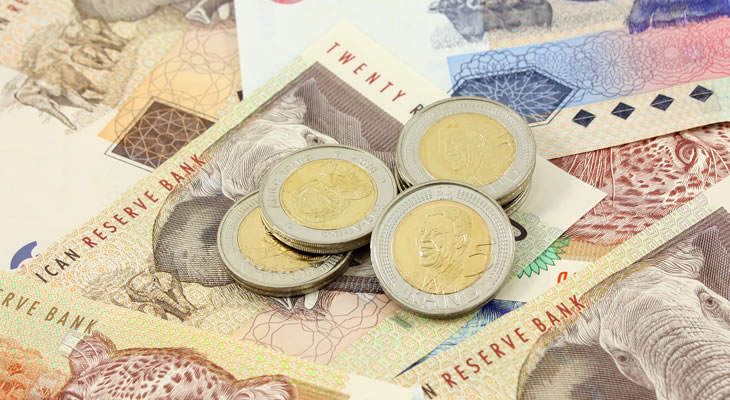Pound to South African Rand Exchange Rate Higher on ‘Trade War’ Concerns
Despite rising market confidence in South Africa’s domestic economic outlook, the Pound to South African Rand (GBP/ZAR) exchange rate has seen steep gains this week and is on track to end the week much higher.
GBP/ZAR opened on Monday at the level of 16.61 and by Friday morning was trending near a two-week-high of 16.86. GBP/ZAR has not spent an extended period of time near these highs since January.
Concerns about the possibility that the US Presidential administration could spark a global ‘trade war’ have left risky emerging-market currencies like the South African Rand (ZAR) a lot less appealing.
Overnight, the US President announced that he was considering $100b worth more of trade tariffs on Chinese imports, in retaliation to Chinese tariffs announced this week. This made markets anxious that a ‘trade war’ was still possible.
As a result, GBP/ZAR has continued to gain throughout the week, despite some disappointing UK ecostats.
Pound (GBP) Exchange Rates Weighed by UK PMI Disappointment
Most of this week’s UK data has fallen short of analyst forecasts and has disappointed Pound (GBP) investors.
Markit published its March UK PMIs throughout the week. While manufacturing beat expectations, both construction and services PMIs fell short of expectations.
As services make up a notable chunk of Britain’s economic activity, news that Britain’s services PMI had unexpectedly slowed from 54.5 to 51.7 was disappointing to Pound traders and limited Sterling gains.
However, despite the poor UK data, economists still believe things are looking up for the Pound.
According to a Reuters poll, forecasts for the British currency are at their highest levels since the Brexit vote in 2016.
This optimism in the British currency is being driven largely by rising confidence that Britain will get a good Brexit deal, and that the Bank of England (BoE) will take a more hawkish outlook on UK monetary policy.
South African Rand (ZAR) Weakened by Trade Jitters Despite Domestic Optimism
Amid a lack of notable South African data published in recent sessions, the South African Rand has been driven more by global factors, such as developments in US stances on trade.
This is despite market confidence that South Africa’s economic outlook has improved in recent months.
Economists expect the South African Rand to sustain most of 2018’s gains versus major rivals like the US Dollar (USD), but Pound strength is making it easy for GBP/ZAR to advance on trade concerns.
As South Africa is an emerging market, the South African Rand is weaker on concerns that a potential ‘trade war’ between the US and China could have a negative impact on the SA economy.
Pound to South African Rand (GBP/ZAR) Forecast: Trade Developments Remain in Focus
If the US and China continue to ramp up trade tariff action against one another, investors are unlikely to find risky emerging market currencies like the South African Rand more appealing any time soon.
The Rand is also unlikely to find any support in domestic data over the coming week, as the most notable South African data due for publication next week will be SA manufacturing and mining stats.
While investors are still more confident about South Africa’s economic outlook under new SA President Cyril Ramaphosa, the currency is unlikely to be supported by that alone, particularly if trade concerns worsen.
The Pound, on the other hand, has the potential to keep advancing thanks to Brexit and Bank of England (BoE) speculation.
Next week will see the publication of UK data such as trade balance, industrial production and manufacturing production stats from February.
If the datasets meet or beat expectations, the Sterling outlook is unlikely to change much and investors will continue to look ahead to May’s Bank of England (BoE) policy decision.


Comments are closed.